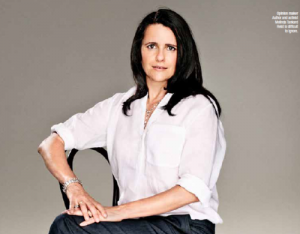Feminism – who’s in and who’s out?
 Why does feminism have to be about who’s in and who’s out? Several weeks ago, Twitter and the bloggersphere were engaged in a fierce debate about whether Melinda Tankard Reist can be considered a feminist, given that she is ‘pro-life’.
Why does feminism have to be about who’s in and who’s out? Several weeks ago, Twitter and the bloggersphere were engaged in a fierce debate about whether Melinda Tankard Reist can be considered a feminist, given that she is ‘pro-life’.
The discussion was spurred by an article in which Tankard Reist featured alongside other self-proclaimed pro-life feminists such as Sarah Palin, the gun-toting darling of the Tea Party. Anne Summer’s response to the affair emphatically tossed pro-life feminists out into the cold, leaving them in a limbo between various left-leaning ‘isms’.
Feminism has been putting on a different set of clothes since its inception, as the global ideology spread and took on a local character. We have Liberal Feminism, Conservative Feminism, Black Feminism, Ecofeminism, Radical Feminism, Third Wave Feminism and the list goes on. Rather than closing ranks, feminism needs to welcome diversity or it threatens to lose sight of the bigger picture.
The reality is that like industrialization and economic development, women’s liberation has been patchy. While not denying the struggles women in first world countries face, the majority of women in the world live in nations where they are not recognized as full citizens, have little to no economic security and are subjected to extremely high levels of sexual violence. By closing ranks, I fear that feminism will become a narrow ideology dominated by a white and Western agenda (some would argue it is already so).
Recently, I was asked to describe my feminism in a recent job interview for a position on an academic project researching feminist jurisprudence. I was stumped. I fudged my way through the question, saying I was still developing my views on a lot of issues (which is true) and struggled to articulate those aspects of feminism I do feel strongly about. Call it interview jitters if you will, but I know I’m not the only one who finds it hard to articulate a clear vision of my feminism.
Ironically, the one aspect of feminism I’m confident with is that it’s incredibly difficult to define. Having worked for feminist organizations before, I can attest that feminists often disagree on the best way forward for women—on quotas, sexual liberation or economic security. Case in point (trivial as it is): do the women of Sex and the City represent ultimate sexual liberation or are they just ‘slutty’?
I understand why, given that many are under the misconception we are in a ‘post-feminist’ era, some people feel it is time to hammer out a watertight definition of feminism as a means of self-defense or self-preservation. But arguments about who’s in and who’s out are—for the most part—unproductive (the one about whether men can be feminists still rages).
Abortion may be the thin end of the wedge; in time, will it be ‘you don’t believe in quotas for women therefore you’re not a feminist’?
Perhaps it’s my tendency to think of feminism more as humanism—a common idea amongst those divorced by age or circumstance from hard battles fought and won by women around the world—but I can’t help but feel as though those struggling for gender equality can use all the support they can get.
By Rebekah Oldfield


This could be me indicating my own idea of feminism, but isn’t calling the Sex and the City women ‘slutty’ slut shaming, that doesn’t seem particularly feminist…
Hi Louise, thanks for commenting! Perhaps ‘slutty’ wasn’t the best word but what I was pointing to was a much contended issue when S&TC first came out about whether the women of the show were actually sexually liberated or not (given that, despite their sexual freedom, they were still often obsessed with men)–and whether their sexual behaviour was a positive or negative thing for the feminist movement.
Pingback: Broadening Feminism[s]: Intersectionality 101 | Opinion | Lip Magazine